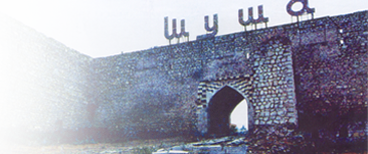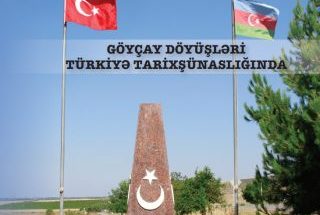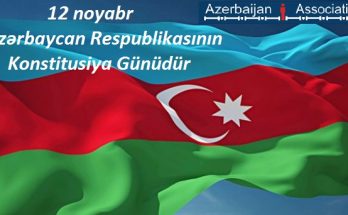 Trend News exclusive interview with UN Secretary General Ban Ki-Moon.
Trend News exclusive interview with UN Secretary General Ban Ki-Moon.
Trend News: Armenia has not yet implemented four resolutions adopted by UN Security Council on the withdrawal from occupied Azerbaijani territory. Do you believe it is necessary to introduce new mechanisms for resolving the problem?
Ki-Moon: The United Nations do not have any direct engagement on the issue of Nagorno-Karabakh peace process, where the OSCE is in the forefront. This question should be asked to the OSCE.
Afghanistan will remain a priority for the UN in 2010. At the beginning of January, you mentioned the necessity to implement a “transition strategy” to shift the focus from a military component to a civilian one. What are your views about this initiative, along with the “US new strategy” in Afghanistan, which envisages significant strengthening of the military presence?
There is a need for a reinforced international coordination structure in Afghanistan under a United Nations umbrella. While my Special Representative maintains overall responsibility for the coordination of international civilian efforts, UNAMA has to be strengthened with staff who have the required experience and are able to engage better in discussions with key donor Governments and embassies in Kabul.
In this regard, my Special Representative also believes that appointing a senior civilian official within the International Security Assistance Force (ISAF) would help to improve coordination of its political and development efforts, in particular by the provincial reconstruction teams, so as to ensure their greater adherence to Afghan plans and priorities across provincial borders.
To further enhance the coordination of civilian efforts, the viability of a dedicated civilian structure is being explored in consultation with the Government of Afghanistan and international stakeholders. If established, such a structure should be co-chaired by an Afghan minister and my Special Representative, with the participation of the International Security Assistance Force, the European Union, the World Bank and the major donors.
There has not been any progress in Palestinian-Israeli peace talks over the last two years. Do you regard the efforts of the Middle East Quartet which includes UN as sufficient? What steps should be taken to unlock the peace dialogue?
Intensive efforts are under way by the international community to restart the long-stalled Israeli-Palestinian peace negotiations. I support the U.S.-led efforts to bring about a resumption of meaningful negotiations on all final status issues, including the security of Israelis and Palestinians, borders, refugees and Jerusalem.
But in the absence of talks, confidence between the parties has diminished. Tensions have risen in East Jerusalem. People in Gaza and southern Israel continue to suffer from violence. I believe that, if we do not move forward on the political process soon, we risk sliding backwards.
How do you assess the implementation of Resolution 1701 on Lebanon, given the constant threats by Israel and Hezbollah to resume a new war?
I hope that Resolution 1701 will continue to be respected by all sides. My Special Coordinator for Lebanon, Michael Williams, has been in contact with a wide range of officials to make sure that all sides will follow through on the implementation of that resolution, which has been proceeding well in recent years.
Many international human rights organizations have confirmed the fact of brutal treatment of the activists of recent riots in Iran. What steps does the UN take to defend human rights in Iran? Are there any discussions with the Iranian government in this respect?
I have repeatedly called on the Iranian authorities to respect fundamental civil and political rights, especially the freedom of expression, freedom of assembly and freedom of information. The situation in Iran is of concern to the international community, and I call on the Government and the opposition to resolve peacefully their differences through dialogue and legal means. My High Commissioner for Human Rights, Navi Pillay, also continues to follow the situation in Iran and has made clear her own concerns about the treatment of activists by the Government.
/Trend News/



